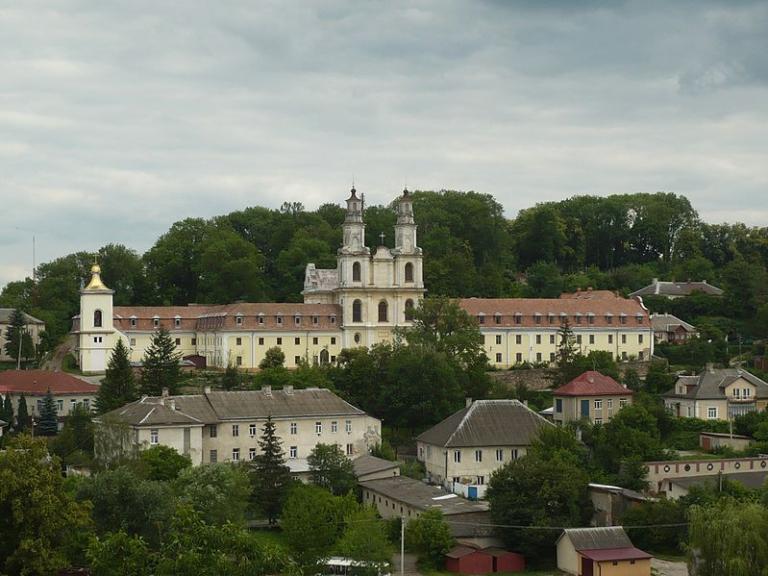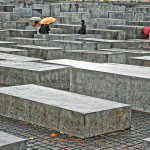
Readers of a certain age may remember the splash Daniel Goldhagen’s Hitler’s Willing Executioners made when it was published in 1996, with its thesis that Germans were uniquely “eliminationist-antisemitic” and that the Holocaust was the natural, inevitable result of centuries of German culture, not a peculiar stain of Naziism that arose out of nowhere, and that Germans were uniquely predisposed to genocide rather than happening to have the misfortune of being that particular group that experienced the circumstances which produced Hitler and led to his rise to power. The book was received quite critically (see Wikipedia); though he certainly demonstrated that, for instance, the “ordinary men” who formed a killing squad which he studied were not self-selected SS troops and were indeed able to opt out but chose not to, he hardly demonstrates that this was somehow unique to Germans.
Anatomy of a Genocide is a book which similarly addresses the historical roots of genocide and the eventual routineness of killing, but with a wholly different geography: the town and environs of Buczacz (Ukrainian transliteration: Buchach), in present-day Ukraine.
Readers of Holocaust narratives will often see a recollection of the years prior to the Holocaust as an idyllic time, when Jews and Christians lived in harmony, and the German occupation came as a tremendous shock. But the experience of this city and the surrounding region was far from this peaceful image. In the early modern period, the region changed hands, from Poles to Russians to Turks, and back to the Poles again, until it became a part of the Habsburg Empire in 1772 and remained so until World War I. The Jewish community was also destroyed in the peasant uprising of 1648, and the entire town was destroyed by the Turks in the late 1670s.
Under the Poles in the early part of the period and subsequently under the Austrians, the Jewish community received legal protection and took on an important role in trade and business. Serfdom was abolished in 1848 and emancipation of the Jews, that is, the abolition of various legal restrictions, came in 1867. But in this same period when Jews saw improvement of their legal status, the Poles and the Ukrainians of the region became increasingly nationalistic, and divided into Poles vs. Ukrainians, seeking out their own national identities, with each side perceiving the Jews as aligned with their enemies, in addition to resentments against the Jews for their involvement in trade and commerce and their conviction that Jews were taking advantage of innocent peasants by luring them into taverns and impoverishing them by their love of alcohol.
World War I provided its own tale of woe, with occupation by the Russians, then a retaking by the Austrians, and then a further re-occupation by the Russians, and each of these accompanied by massive destruction of the city, and, when occupied by the Russians, murders of the Jews. After World War I was ended, there were further wars/rebellions as the Ukrainians battled the Poles for control, before subsequently becoming a part of Poland itself. And in the interwar period, Poland sought to Polonify the region, which was by international agreement supposed to have a certain degree of autonomy. Opportunities for Ukrainians to educate their children in their language and develop their culture were diminished, and underground resistance groups (with varying degrees of nonviolence) were formed. When the Soviets occupied the region in the wake of the Nazi invasion, the shoe was on the other foot: Poles were now the oppressed ones, with Ukrainians taking their revenge. And the Jews, on the one hand, received relatively more favorable treatment from the Soviets now in power, but, on the other hand, were the objects of resentment as a result.
Which brings us to the Nazi occupation. And what’s disappointing about Bartov’s narrative is that this clash of ethnic groups that he’s been building up, the resentments between Poles and Ukrainians, and those directed at the Jews by both of these groups, just seem to melt away, in much of the way he frames his narrative.
The Germans then enter the story. Presuming that readers will know the broad outlines of the Holocaust, he dives right into the narratives of the various German participants in the killings, drawing from court records of trials held in the 1960s in which, in order to convict an individual, it was necessary to prove that he did not just “follow orders” but killed “for sport” in some way or another. Hence, witness testimonies focused on stories of arbitrary random killings, not participation in round-ups and mass killings. (Based on the reports one hears now, it seems that this high bar has been lowered, but I have the impression that this requirement was set so as to be scrupulous about providing fair convictions rather than victors’ justice, though the book doesn’t explain this.) And these reports paint a picture of men who lived ordinary lives, before and after the war, but during the war, had this opportunity opened up to them to become killers, to enjoy exercising this power of life and death. They liked to portray themselves in their testimonies as really quite merciful, “just following orders,” dispensing favors, and use instances of being offered gifts by the Judenrat as a sign of gratitude rather than desperation. They claimed that they only escorted Jews to killing sites but never pulled the trigger themselves. And, of course, they neglect to tell the stories that witnesses shared, of killing Jews point-blank as they plead for their lives.
But that’s only part of the story. Ukrainian policemen were a constant part of the killing process. It may have been the Gestapo behind the machine guns, but it was the Ukrainian policemen who guarded the Jews and prevented their escape, and one after the next of the narratives of survival that Bartov cites includes the hiding spots of friends and family of the survivor being betrayed by Ukrainians. Yes, there are also stories of Ukrainians hiding Jews, but the pattern seems to be much more a matter of Poles hiding, Ukrainians betraying. And, yes, it is certainly true that the Germans provided incentives for the betrayal, such as monetary rewards, and threatened punishment for those found hiding Jews, and perhaps my own read of these chapters was faulty, but Bartov nonetheless really seems to be skirting the difficult question: to what extent did existing antisemitism among Ukrainians enable the genocide?
Looking back, when Ukrainians gave their testimonies in later years (by which time there were no Poles, because they were themselves ethnically-cleansed to present-day Poland), the destruction of the Jewish community largely faded from memory. Perhaps to erase their own culpability, they describe the Jews as passive and failing to resist, ignoring the fact that, at the time of execution, the site was surrounded by Ukrainian guards, and as the occupation continued, Jews’ hope in being able to hide faded due to lack of help from their neighbors.
But having said all this, it’s not an easy question to discuss. The Poles, after all, have not only campaigned against any use of the phrase “Polish death camps” — which is fair enough, since “death camps in occupied Poland” is indeed the right choice of phrase — but have made its use illegal, and this is really a small part of their overall objection to any telling of the history that suggests that Poles were not solely victims but also, at some times and places, collaborators. One suspects that one doesn’t read similar complaints coming from Ukraine simply because the country is far less visible to the West.
And if Ukraine were more visible to the West, and the target of accusations of genocide-enabling collaboration, how would they respond? One imagines a certain “sure, our ancestors were anti-Jewish, but in the end, the Nazis were the occupiers, not us, and the Holocaust would have happened one way or the other, even if it would have been a little harder for the Nazis to implement without Ukrainian help.”
But it all matters, in a time when activists are crying out “if we let your guard down for even an instant, White Supremacists will instigate a genocide on American soil.” And of course, we don’t want to foment mass murder, or even garden-variety oppression, but neither do we want to curtail freedoms by imagining that this is what we need to do in order to prevent this.
Image: https://commons.wikimedia.org/wiki/File:Buczacz.Bazylianie1.jpg; By Tomasz Leśniowski [CC BY-SA 4.0 (https://creativecommons.org/licenses/by-sa/4.0)], from Wikimedia Commons.












